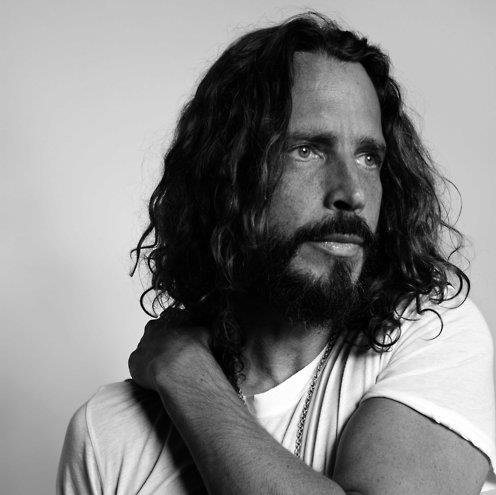The family of Chris Cornell questions the Detroit coroner's conclusion that the late Soundgarden singer committed suicide in a hotel room on Thursday following a concert by his group. In a public statement letter from Cornell family attorney Kirk Pasich stated:
"Without the results of toxicology tests, we do not know what was going on with Chris—or if any substances contributed to his demise. Chris, a recovering addict, had a prescription for Ativan and may have taken more Ativan than recommended dosages," Pasich said. "The family believes that if Chris took his life, he did not know what he was doing, and that drugs or other substances may have affected his actions."
Cornell's wife Vicky suggesting that the 52-year-old grunge icon may have taken an accidental overdose of anxiety medications, which in high doses can be lethal.
“When we spoke after the show, I noticed he was slurring his words; he was different,” his wife added. “When he told me he may have taken an extra Ativan or two, I contacted security and asked that they check on him.”
The dangers of benzodiazepines, the class of drug Ativan belongs to, is no secret and is well known for its role in suicide cases. The drug's side effects include slurred speech, difficulty talking, depression, unmasking of depression and suicidal ideation/attempts. Ativan is one of the strongest benzodiazepine drugs on the market and prescribing to patients who are recovering from addiction abuse is not commonly advisable for physicians.
The scholarly journals of the psychiatric profession were filled with early warnings, beginning almost 50 years ago. Two studies have examined the role of benzodiazepines on actual or attempted suicide. A study examining elderly suicides in Sweden found that between 1992 and 1996, benzodiazepine hypnotics dominated drug-poisoning suicides (216 of 548, 39%) in those aged over 65 years. During the same time frame, a population-based cohort study in Canada found a significant association between suicide attempts and benzodiazepine usage. A 2016 study found that the overdose death rate related to benzodiazepines more than quadrupled between 1999 and 2010, from 0.58 per 100,000 adults to 3.07 per 100,000 adults. The largest increase was among adults 18 to 64 years of age.
"Without the results of toxicology tests, we do not know what was going on with Chris—or if any substances contributed to his demise. Chris, a recovering addict, had a prescription for Ativan and may have taken more Ativan than recommended dosages," Pasich said. "The family believes that if Chris took his life, he did not know what he was doing, and that drugs or other substances may have affected his actions."
Cornell's wife Vicky suggesting that the 52-year-old grunge icon may have taken an accidental overdose of anxiety medications, which in high doses can be lethal.
“When we spoke after the show, I noticed he was slurring his words; he was different,” his wife added. “When he told me he may have taken an extra Ativan or two, I contacted security and asked that they check on him.”
The dangers of benzodiazepines, the class of drug Ativan belongs to, is no secret and is well known for its role in suicide cases. The drug's side effects include slurred speech, difficulty talking, depression, unmasking of depression and suicidal ideation/attempts. Ativan is one of the strongest benzodiazepine drugs on the market and prescribing to patients who are recovering from addiction abuse is not commonly advisable for physicians.
The scholarly journals of the psychiatric profession were filled with early warnings, beginning almost 50 years ago. Two studies have examined the role of benzodiazepines on actual or attempted suicide. A study examining elderly suicides in Sweden found that between 1992 and 1996, benzodiazepine hypnotics dominated drug-poisoning suicides (216 of 548, 39%) in those aged over 65 years. During the same time frame, a population-based cohort study in Canada found a significant association between suicide attempts and benzodiazepine usage. A 2016 study found that the overdose death rate related to benzodiazepines more than quadrupled between 1999 and 2010, from 0.58 per 100,000 adults to 3.07 per 100,000 adults. The largest increase was among adults 18 to 64 years of age.





 RSS Feed
RSS Feed